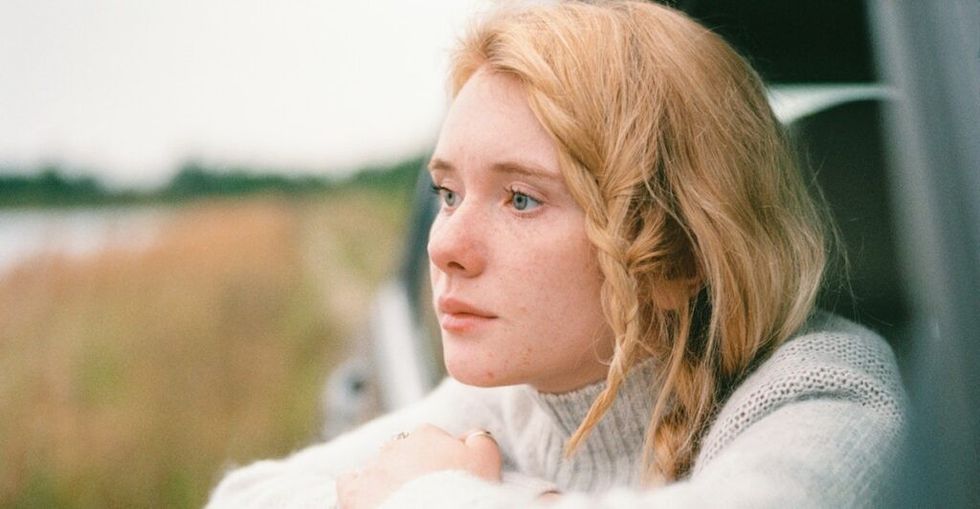People love trivia, that’s just a fact. That explains the popularity of long-running shows like Jeopardy or Who Wants to Be a Millionaire?, and countless volumes of trivia books. Despite its close relationship to "trivial," trivia can be of great importance, particularly to those who love nothing more than to challenge -- and, ideally, beating -- their friends in battles of knowledge. And for that, they require hard trivia questions for the next big game night.
RELATED: Do the 36 Questions Really Lead to Love?
But how do you plan the best trivia night for your friends? You come up with the best trivia questions, and difficult trivia questions definitely rank among them.
Note, however, that doesn't mean the hardest trivia questions. It’s remarkably easy to come up with dozens of hard trivia questions that require knowledge too obscure to answer -- or to be any fun. We’ll share a few examples of bad trivia questions below for reference.
One secret to creating great (and fun) trivia questions that aren't too challenging is to come up with ones that can have more than one correct answer. That way, you allow people to plumb the depths of their knowledge, and find not only the right answer but also enjoy that boost of self-confidence that comes with getting it right.
And really, when you’re having a trivia night with friends, isn’t that more important than stumping everyone? If you agree with that sentiment, then, by all means, avoid questions like those found in the first segment
Skip ahead:
- Hard Trivia Questions About American History
- Hard Trivia Questions About Geography
- Hard Trivia Questions About The Human Body
- Hard Trivia Questions About Sports
- Hard Trivia Questions About World War II
- Hard Trivia Questions About Everything Else!
Examples of Bad Trivia Questions for Your Game Night

Here are five examples of trivia questions that are too difficult to be considered fun. Why? Because they are almost surely unanswerable by most players. Thus, they risk leaving people feeling as if they came up short.
RELATED: Truth or Dare Questions for Your Next Game Night
1. What is the capital of Togo? (It’s Benin, but unless players have prepared specifically for geography, this is probably too obscure.)
2. What is the third-tallest mountain on Earth? (It’s Kangchenjunga, in the Himalayas, in the border region between Nepal and India. However, almost no one is going to readily answer that.)
3. What is the 10th decimal digit of pi? (It’s 5, but people who can recite pi to 3.14159, a standard number of digits recalled, will feel they perhaps should have known.)
4. Who was Teddy Roosevelt’s first lady? (It was Edith Kermit Carow Roosevelt, but this is a “gotcha” question, because it's rather obscure, and because she wasn't his first wife.)
5. Name five former U.S. secretaries of state. (There are plenty to name, but this question asks for too many responses to be much fun!)
Now, let’s move on to some great hard trivia questions.
Hard Trivia Questions About American History

These questions have a single correct answer. Plus, U.S. history is a subject in which most American citizens can be expected to have at least some grounding.
RELATED: 101 Deep Questions to Ask Your Boyfriend, Girlfriend or Partner
1. What is the oldest European-founded city in the United States? (St. Augustine, Florida, founded in 1565)
2. Name all four U.S. presidents who were assassinated while in office. (Abraham Lincoln, James Garfield, William McKinley and John F. Kennedy)

3. In which war did the most Americans die? (the American Civil War, in which an estimated 620,000 men, or 2 percent of the U.S. population at the time, lost their lives)
4. In what year did the first Ford Model T sell? (1908)
5. Who was the first U.S. president to appear on television? (Franklin Delano Roosevelt, on April 30, 1939, during the opening session of the New York World's Fair)
6. What does the middle initial "S" stand for in U.S. President Harry S. Truman's name? (This is a little tricky. Truman had no middle name. His parents gave him the middle initials as a compromise to honor both grandfathers, Anderson Shipp Truman and Solomon Young)
Hard Trivia Questions About Geography

Most of these have multiple correct responses, which is a great way to make a hard trivia question a bit easier to field. And it's more fun for a wider group of participants.
RELATED: 100 of the Best Questions to Ask People to Get to Know Them
1. In what state is the tallest mountain in the continental United States? (California)
2. Name two of the five deepest points in the world’s oceans. (Mariana Trench, Puerto Rico Trench/Milwaukee Deep, Java Trench, South Sandwich Trench, Molloy Hole)
3. Name five countries whose names begin with the letter G. (Gabon, Gambia, Georgia, Germany, Ghana, Greece, Grenada, Guatemala, Guinea, Guinea-Bissau, Guyana)
4. What is tallest mountain in Australia? (Mount Kosciuszko)
5. What is the longest river in Europe? (Volga)
6. Which country's flag features a dragon? (Three possible answers: Bhutan, Malta or Wales)
Hard Trivia Questions About the Human Body

These questions can be fun with players of different ages. Kids often will know more about the human body than adults do, because they more recently learned about it.
RELATED: The Most Powerful Questions to Ask Your Partner to Connect on a Deeper Level
1. Name the three bones found in the inner ear. (Hammer, anvil, stirrup)
2. How many total chromosomes does a human cell have? (46 – 23 pairs, but 26 total)
3. What is the second-biggest organ in the human body? (Liver)
4. Name four types of bone found below your pelvis. (Femur, patella, tibia, fibula, tarsals, metatarsals, phalanges)
5. Does an average head of full hair have about 1,000, 7,500, 10,000 or 15,000 hairs? (10,000)
Hard Trivia Questions About Sports

These questions mostly have single answers, as statistics are such an important part of sports.
RELATED: You’re Making Friends Wrong – Here’s How to Do It Right
1. Which sport is older, basketball or American football? (Football)
2. In which decade was baseball’s first perfect game thrown? (1880s)
3. Name five positions on a soccer/football team. (Goalkeeper, sweeper, center back, full back, defensive midfielder, central midfielder, attacking midfielder, wing back, winger, striker, forward)
4. This Major League Baseball team (currently) has the second-most World Series wins. (Cardinals, 11)
5. Who (currently) holds the all-time point record in the National Basketball Association? (Kareem Abdul-Jabar, 38,387)
6. In which year was the first football World Cup held? (1930)
Hard Trivia Questions About World War II

What can we say? People love trivia about the Second World War.
RELATED: Are You a Good Friend? These Tips Will Help You Become an Even Better One
1. On what day did Nazi Germany invade Poland? (Sept. 1, 1939)
2. Name three European countries that remained neutral during World War II. (Ireland, Portugal, Spain, Sweden, Switzerland, Turkey)
3. On what date was victory declared in Europe? (May 8, 1945)
4. Name three types of American World War II fighter planes. (P-51 Mustang, P-47 Thunderbolt, P-38 Lightning, P-40 Warhawk, F4 Corsair, F6 Hellcat, P-63 Kingcobra, etc.)
5. What was the deadliest battle of World War II? (Battle of Stalingrad, with approximately 2 million casualties)
Hard Trivia Questions About Everything Else!

Sometimes, it's more fun to take a wide-open approach. So here are 10 more great trivia questions from all sorts of topic areas.
RELATED: 6 Ways to Build New, Meaningful Friendships as an Adult
1. How many legs does a centipede have? (30)
2. Name one of the only African countries that were never colonized. (Ethiopia and Liberia)
3. How many humps does a dromedary camel have? (One)
4. Who was the youngest U.S. president ever? (Teddy Roosevelt, at 42)
5. In which decade were the first artificial Christmas trees manufactured? (1930s)
6. What is the hardest natural substance on Earth? (Diamond)
7. What is the best-selling album of all time? (Michael Jackson’s Thriller)
8. Who was the youngest British prime minister ever? (William Pitt the Younger, at 24)
9. What is the only mammal that is fully covered in scales? (Pangolin)
10. Who was the first Disney princess? (Snow White)



































